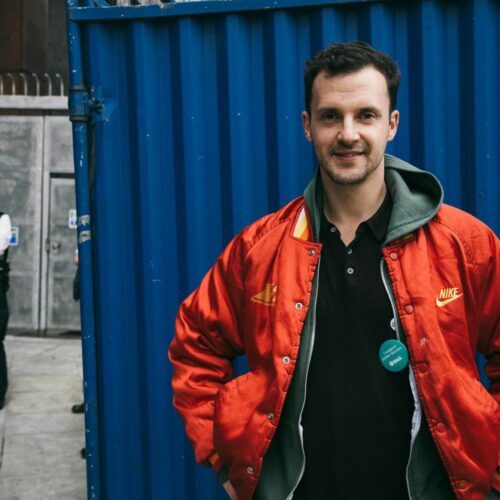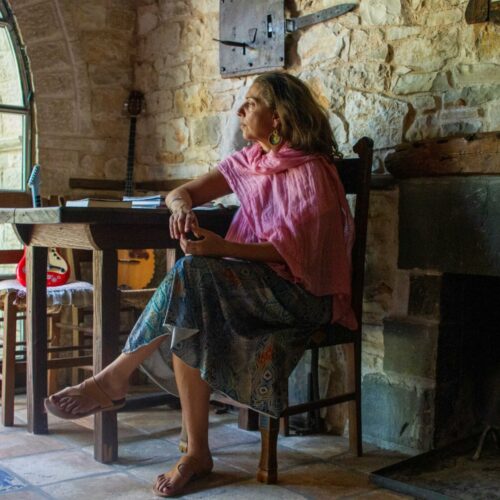Phyllis Opoku-Gyimah, also known as Lady Phyll, is a force to be reckoned with. Her pioneering activist work has increased visibility and advocacy for Queer, Trans and Intersex People of Colour (QTIPOC) in the UK and beyond. One of her landmark achievements is as the co-founder and director of Black Pride, the first event of its kind in Europe celebrating “LGBTQ people of African, Asian, Caribbean, Middle Eastern and Latin American descent… to promote and advocate for the spiritual, emotional, and intellectual health and wellbeing” of these communities.
“When we rise together, we are mighty.”
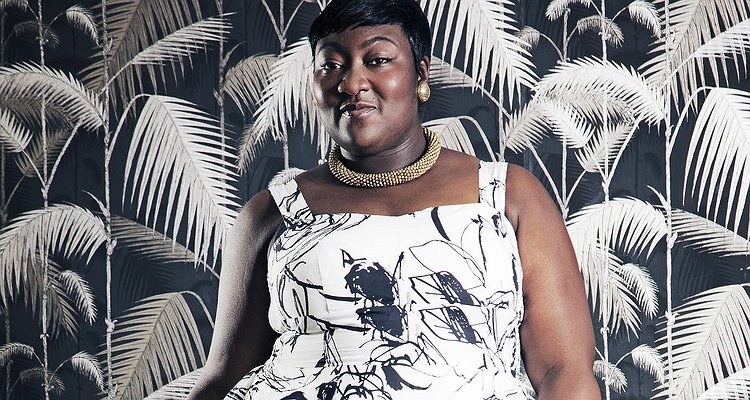
Lady Phyll is also a trustee at Stonewall and sits on the Trades Union Congress (TUC) race relations committee. She has won numerous awards for her work including the Black LGBT community award, as well as being honoured on the Independent on Sunday Pink List (2011) and the World Pride Power List (2012). In 2016 she publicly refused an MBE.
Despite the legal gains that have been made for LGBTQ+ people in the West over the last few decades, the struggle for Queer liberation is ongoing, especially in the global South. According to YouGov statistics, in the UK hate crimes and discrimination against LGBTQ+ people have increased significantly since the Brexit vote. It is important to note that QTIPOC are disproportionately impacted, with a third having experienced a hate crime in the last year based on their gender or sexuality, compared to 20 percent of white LGBT people. This is arguably due to the intersections racism, homophobia, transphobia and other oppresions which compound each other. Unfortunately, it is common for QTIPOC to experience racism within mainstream LGBT community spaces and events in the West. As a result, Black Pride is incredibly important for the QTIPOC community as it provides a space to celebrate and revel in the intersections of our lived experience, allowing us to build community and create collective pathways to thrive, rather than simply survive.
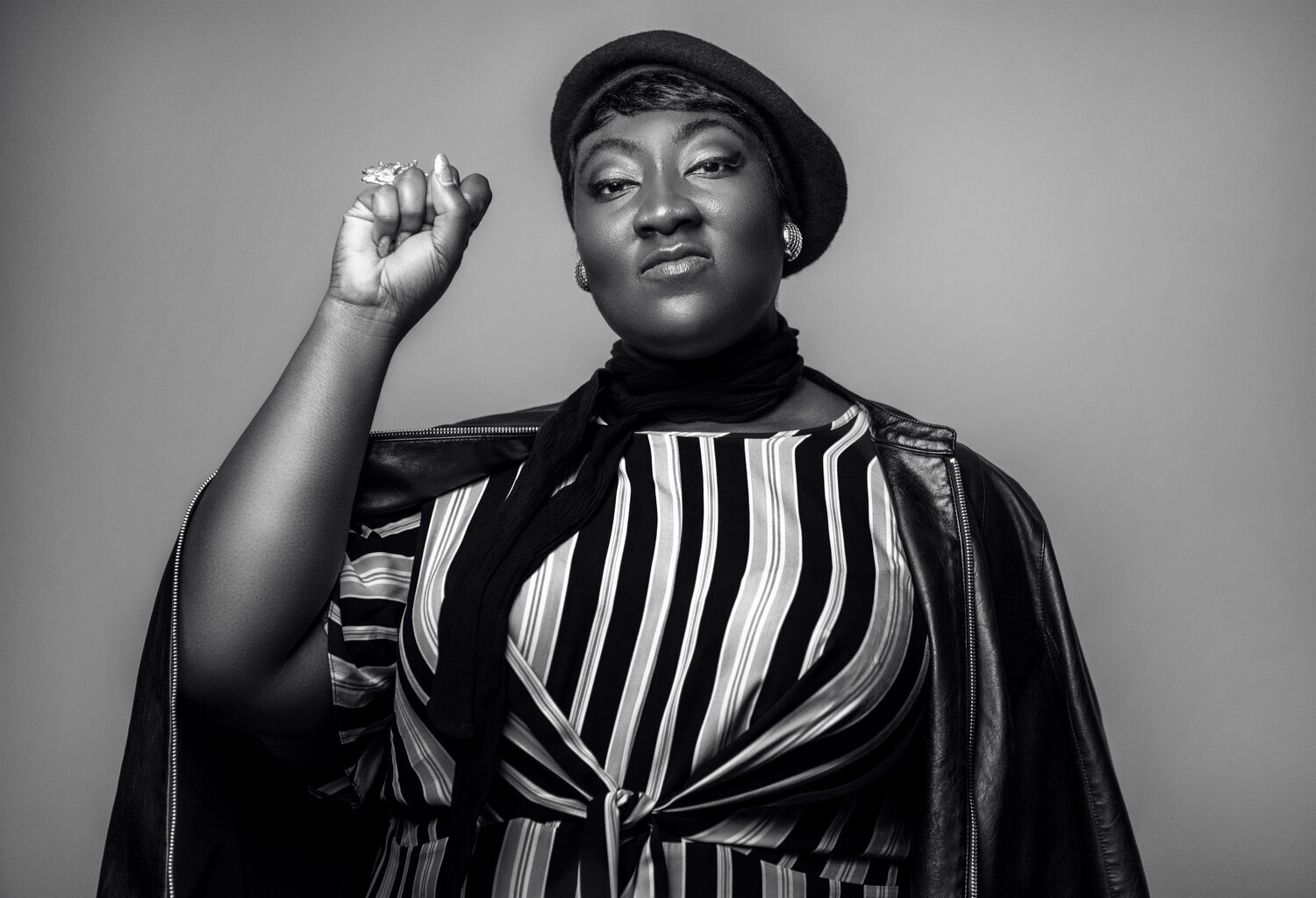
Writing from London, Lady Phyll shares her views on activism, social change, ancestors and what keeps her strong in the work. According to Lady Phyll activism is less of a choice for her and more of a birth right: “Some of us are born with a nagging, persistent and stubborn feeling that we are part of the solution, and I’m one of those people…I decided to follow my gut and engage with the work, but it often feels bigger than me. My lineage, like that of much of the diaspora, is one of fighters, agitators and activists. I have inherited a strength that I think would be hubristic to call my own.”
It is inspiring to hear Lady Phyll acknowledge the importance of ancestors and honouring the work that has been done already to get us where we are today. Marsha P. Johnson is a name that everyone in the LGBTQ+ and ally community should be familiar with. Marsha was a Black Trans woman who co- founded the Gay Liberation Front and acted as a key instigator in the Stonewall riots of 1969. These actions in New York City, sparked a wave of Gay Liberation work in the USA and beyond. It is crucial that we remember our history, honour our ancestors and celebrate the Queer liberation work that has been led by Black and Trans people of the global majority (aka POC). The fact that so many within the LGBT community do not know the names Marsha P. Johnson or Sylvia Rivera, speaks to the ways in which the achievements of QTIPOC are often invisiblised, while the fruits of their labour are enjoyed.
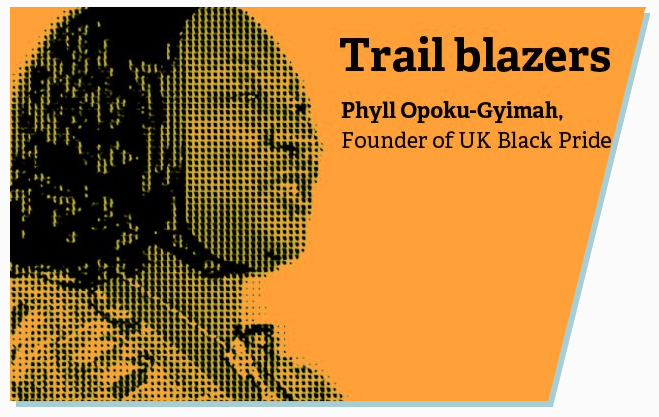
To Lady Phyll, ancestors are inherently connected to our bodies. Their stories weave the webs of generational trauma that we carry and pass down within our family lines. Epigenetics and trauma research provides a scientific framework to understand this in greater depth. Lady Phyll notes:
“We are here because so many people before us survived and this is such an immense concept. I’m a descendant of women who fought back, who loved and who spoke the truth… I also think we honour our ancestors (those of blood and of spirit) in this work. And I will be someone’s ancestor. I want them to look back and say, “I can do this because Phyll helped prepare me and the world for this work.” In that way, I think each of us can carry on the legacy.” These acts of solidarity and care do not have to be big, even small and private moments can create monumental change.
In terms of the future that she wants to see, Lady Phyll is committed to a world free from “racism, sexism, misogynoir and discrimination.” She visions a world in which “LGBTQ youth don’t take their own lives. A world where women walk down the street unbothered. A world that is safe for my daughter and my daughter’s daughter.” In this space, the gender binary has been dismantled and people are embraced for “who they are, with no exceptions.” This world is free from shame and racist violence against Black and Brown bodies. “It is a world that honours our lives, spirits and dreams. A world we deserve to live in.”
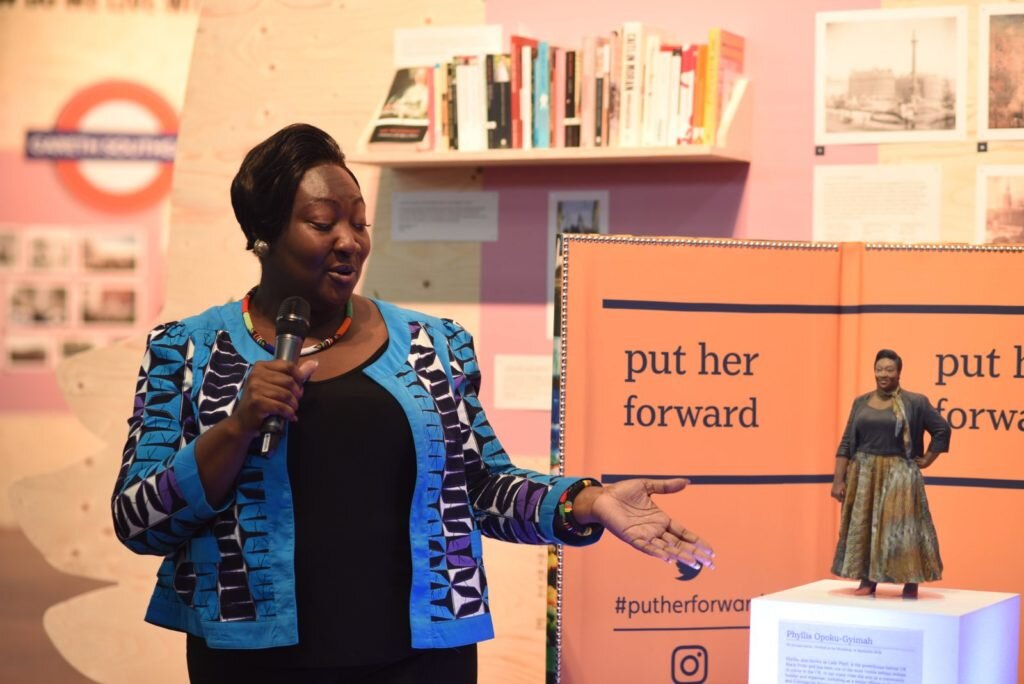
This ability to vision and imagine new realities is so important to cultivate in our current times when things feel bleak. As many Science Fiction writers and speculative fiction devotees, such as Adrienne Maree Brown, note we need to imagine the future(s) we want to create, develop a clear vision and work out the next most elegant step to get there. Black Pride is a beautiful example of this process. Hopefully its existence will provide a safe, liminal space for the further unfolding, visioning and co creation.
While working towards Collective Liberation, it is important to take of ourselves, our communities and actively use strategies to avoid burn out. Like many activists, Lady Phyll is in the process of learning how to balance being of service to others whilst also taking care of her own well being:
“As I’ve grown older, I’ve really understood that I can’t be of service to others if I can’t look after myself. So, I continue to make a conscious effort to do things, big and small, to revitalize and energize myself. These actions run the gamut, from getting my nails done to re-reading Audre Lorde… I take advantage of quiet moments during the day…breathe, step back, drink some water.” Lady Phyll stresses the importance of pausing, being aware and attentive to our needs, as well as our feelings as we move through each day.
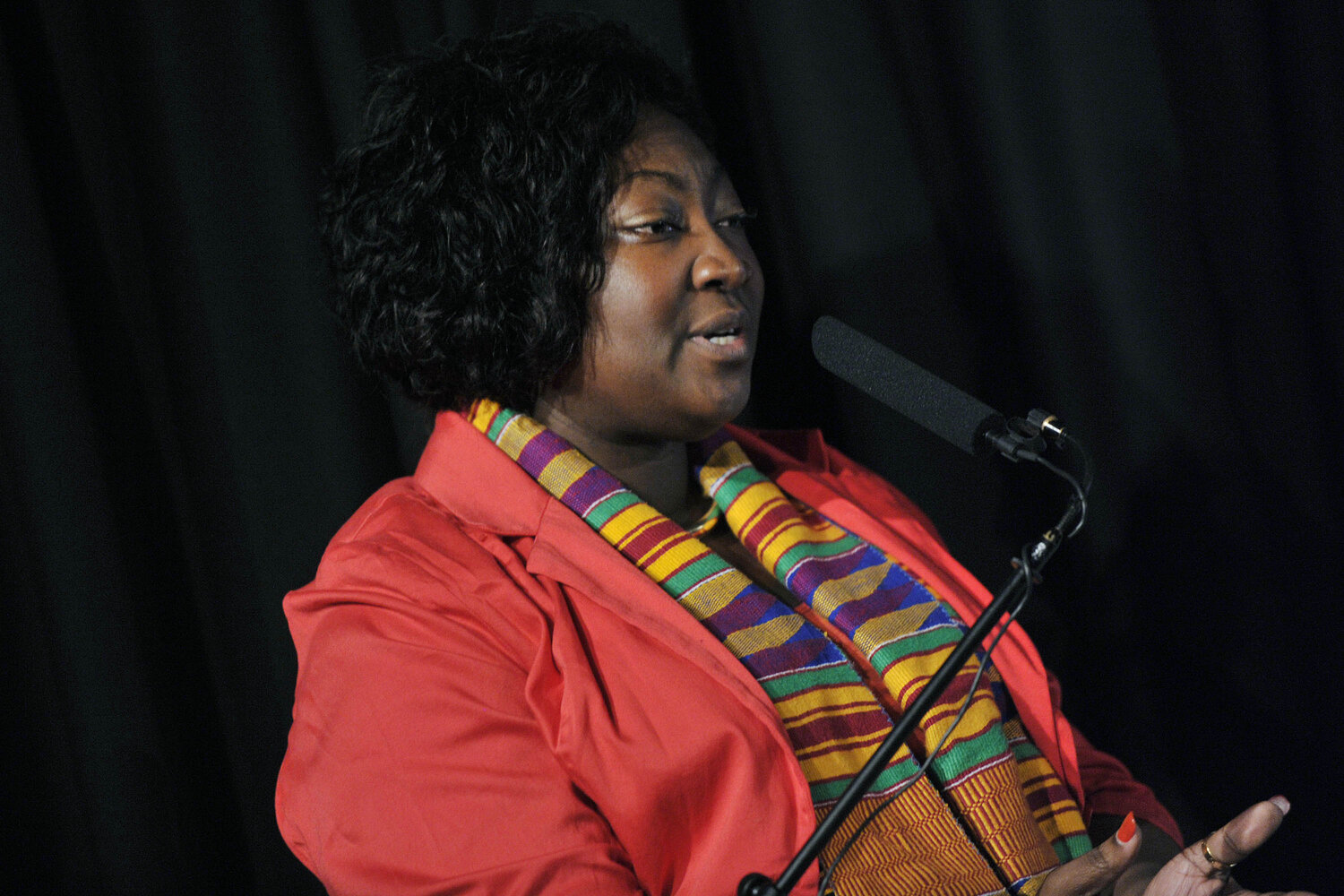
In terms of advice for other LGBTQ+ folks and people of the global majority seeking to make change in the world, Lady Phyll reminds us to find each other, build community and create anchor points to contradict the feelings of isolation that can arise in activist work:
“In predominantly white countries, it’s easy for us to forget that we are part of the global majority, that we are connected to billions of people across the world whose dreams for and actions toward liberation align with our own… The work of an activist can be lonely and so understanding that you are tethered to many others like you is an important anchor point.”
This article was first published on TheRadicals.org

